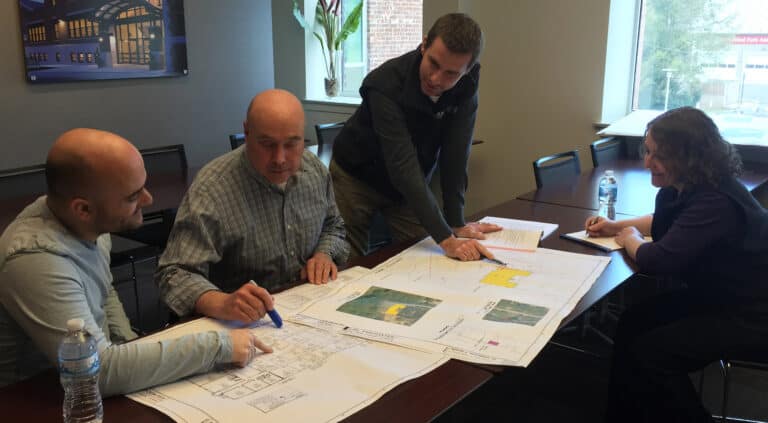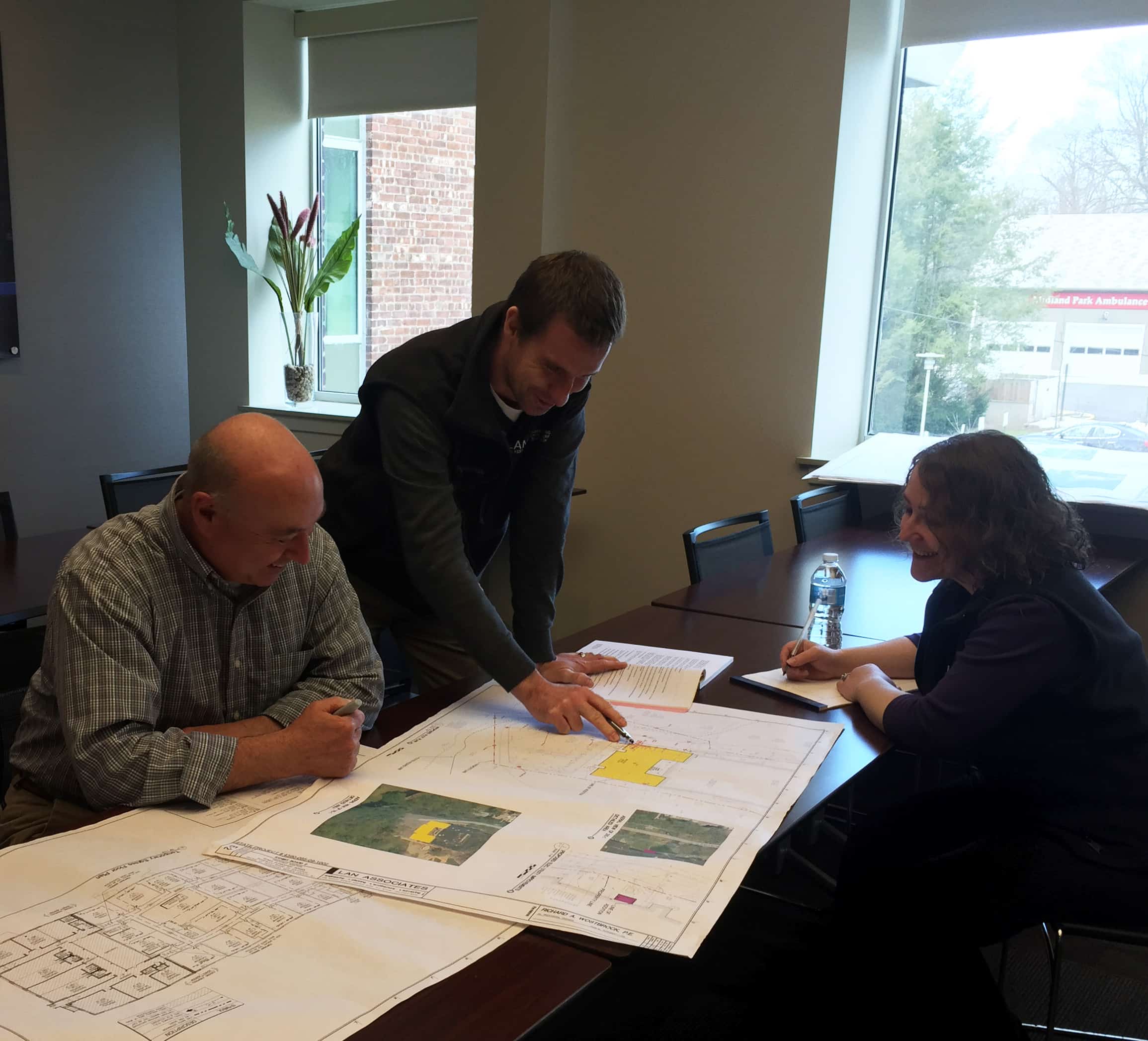Whether you are opening a new business or have decades of experience, understanding everything you need to know about New Jersey Air Permits can be overwhelming. Getting an air permit in NJ requires knowledge and understanding of the types of New Jersey permits, the categories of equipment that require one, and proving your facility is in compliance with the New Jersey Department of Environmental Protection’s (NJDEP) air permitting regulations.
If you don’t happen to be an environmental scientist and need a little guidance on how to get an air permit in NJ, you are in luck. Our experienced team has put together this guide to help you understand the issues at hand and the process you will need to go through.
Let’s start with the basics. An air permit is the license required from the state of New Jersey for any equipment, operation, or process that emits pollutants. Regulatory agencies refer to anything that releases potentially hazardous pollutants into the air as “sources.” The purpose of the permit is to ensure your sources are in compliance with the environmental regulations required to maintain the air quality requirements set by the state of New Jersey.
If you are releasing pollutants into the air, you may need an air permit in New Jersey. Manufacturing facilities, quarries, asphalt plants, solid waste facilities, and concrete plants all need one in the Garden State, as do most operations with engines that generate electricity. These New Jersey requirements don’t just apply to businesses with substantial complicated machinery or large manufacturing facilities. Your dry cleaner needs one, as does your local school. Have a boiler or furnace? You guessed it, you need one. Sometimes even temporary equipment requires compliance. Due to the wide range of equipment considered a significant source, we recommend contacting an air permit consultant who can help you understand your responsibilities under the law.
The scope of your operation, and the amount and type of pollutants you are releasing dictate the type of air permit you need and how complicated it will be to obtain. The NJDEP offers the following types of permits in New Jersey:
A General Permit is the most common type of air permit. It’s a pre-approved permit that pertains to a wide variety of frequent situations. General Permits are commonly used for boilers, emergency generators, and gasoline storage tanks, as well as some other common equipment.
Minor facilities with sources that do not fall under the scope of a general air permit in New Jersey will need a case by case/pre-construction permit. Preconstruction permits are required in a variety of facilities – We have seen them for pharmaceutical companies, quarries, asphalt plants, concrete plants, plastic manufacturers, commercial bakeries, printing operations, and even boilers/generators that didn’t meet the general permit criteria.
A General Operating Permit is a permit to operate specific equipment at a major facility that is subject to Title V of the Federal Clean Air Act. These permits are for large facilities with emissions above specified thresholds, and are not as common as Pre-Construction and General Permits.
A Title V Operating Permit is for major facilities with sources that are not covered under a General Operating Permit.
Just because equipment is temporary or portable, it doesn’t mean you are off the hook when it comes to air permits in New Jersey. For starters, anything on site for over a year is not considered temporary. There are exceptions for some construction, repair, and maintenance activities, but it is a good idea to check if your temporary equipment is subject to air permitting regulations. There is a General Permit that can be used for temporary equipment that meets some very specific criteria. If the criteria of the General Permit are not met, a Preconstruction Permit might be required.
Portable equipment used at different places throughout the state also needs to be permitted. Equipment used at different sites is typically permitted on a Preconstruction Permit with special provisions to allow for hybrid approval for portable statewide use of some equipment.
So, you need an air permit…..for a facility that is already in use….. Best advice, get one ASAP. Just because you have not applied for a permit does not mean you will fly under the radar. Contact a professional if you would like help.
In New Jersey, once you get covered under an air permit your work is not over. You need to observe all required monitoring and necessary action to ensure you stay in compliance. It’s especially important to keep up to date with recordkeeping requirements, annual emission statements and annual combustion adjustment reports. These are all easy steps you can take to help ensure you don’t lose track of your responsibilities and expose yourself to an easy violation for an inspector to find.
New equipment is most likely not covered under an existing air permit. If you have an existing New Jersey air permit and need a new source covered, you will need to file an application to either modify your existing permit to include the new equipment or to obtain a new permit for the new equipment. Even replacement of existing equipment with similar equipment typically requires application to the NJDEP.
When it comes to modifications of a New Jersey air permit, how you go about modifying it is determined by the details. Permits do not transfer from one piece of equipment to another, so any time that equipment is added or replaced, the air permit needs to be modified to include the new equipment. Modifications are also required for increases in emissions, which can occur if processing rates increase, and for stack changes, addition of control devices, and requesting changes to the compliance plan in the permit.
To modify a general permit, you would need to file a new general permit registration. For preconstruction permits, you would need to prepare an air permit application for modification using the NJDEP’s RADIUS software for submission to the NJDEP.

When it comes to modifications of a New Jersey air permit, how you go about modifying it is determined by the details. Permits do not transfer from one piece of equipment to another, so any time that equipment is added or replaced, the air permit needs to be modified to include the new equipment. Modifications are also required for increases in emissions, which can occur if processing rates increase, and for stack changes, addition of control devices, and requesting changes to the compliance plan in the permit.

To modify a general permit, you would need to file a new general permit registration. For preconstruction permits, you would need to prepare an air permit application for modification using the NJDEP’s RADIUS software for submission to the NJDEP.
Some other changes, such as changes in contact information, facility name, mailing address, and transfer of ownership can be made by filing a non-technical amendment application form with the NJDEP.
Knowing for sure if you need NJDEP approval can be a bit tricky. Your best option is to contact an air permit consultant if you are at all unsure of your obligations.
Some other changes, such as changes in contact information, facility name, mailing address, and transfer of ownership can be made by filing a non-technical amendment application form with the NJDEP.
Knowing for sure if you need NJDEP approval can be a bit tricky. Your best option is to contact an air permit consultant if you are at all unsure of your obligations.
Complicated Answer:
The steps involved in getting an air permit in New Jersey depend on what type of air permit your facility needs. Prior to filing for any air permit, you will need to ensure that your facility has an NJDEP Air Permit Facility ID number. Then, for general permits, you would need to prepare and submit an air permit registration with all of the necessary equipment and facility information via NJDEP’s website (DEPOnline). You will also need to make sure that your facility’s equipment meets the requirements of the General Permit.
For Preconstruction Permits, you would need to prepare an air permit application using the NJDEP’s RADIUS software. You will also need to perform calculations to estimate the maximum emissions from the equipment to include in the RADIUS application. The RADIUS application also requires detailed information regarding the equipment to be permitted, as well as the associated emission points and control equipment.
Simple Answer:
While this is technically a process you could complete on your own, most of the time it is easier to accomplish with a professional consultant. Hiring an air permit consultant familiar with New Jersey regulations typically makes the application process go more smoothly.
By now it’s probably clear that if you if you need an air permit, you will probably need the services of a consultant. If you have any questions and would like to speak with a professional, please reach out here.

LAN Associates is a full-service engineering, planning, architecture, and surveying firm founded in 1965. We take pride in our ability to address the distinct needs of our large and varying client base.